
Mongar: The Heartbeat of Eastern Bhutan
Mongar, a serene town nestled in the heart of Eastern Bhutan, offers an enchanting blend of cultural heritage and natural beauty. As you wind your way through the lush green hills, the first sight of Mongar is nothing short of breathtaking. The town is known for its unique architecture, including the majestic Mongar Dzong, a modern fortress that still holds the charm and tradition of ancient Bhutanese structures. The Dzong stands as a testament to the town's rich history and spiritual significance. Mongar is also a gateway to some of Bhutan's most pristine and untouched landscapes. The town is surrounded by verdant forests, terraced fields, and picturesque villages, making it a paradise for nature lovers and trekkers. The journey to Mongar itself is an adventure, with winding roads offering panoramic views of the Himalayas and the lush valleys below. The local culture in Mongar is vibrant and welcoming. Visitors can immerse themselves in traditional Bhutanese life, from colorful festivals to exquisite handicrafts. The town's markets are a treasure trove of local products, allowing you to take a piece of Mongar's charm home with you. With its serene environment and warm hospitality, Mongar provides a peaceful retreat from the hustle and bustle of modern life.
Local tips in Mongar
- Visit during the Mongar Tshechu festival in November to experience vibrant local culture and traditional dances.
- Take a guided trek to the nearby villages to explore the untouched natural beauty and meet the local people.
- Try the local cuisine at a traditional Bhutanese restaurant for an authentic taste of Mongar.
- Shop at the local markets for unique handicrafts and textiles, perfect souvenirs from your trip.
- Respect the local customs and dress modestly, especially when visiting religious sites.
Mongar: The Heartbeat of Eastern Bhutan
Mongar, a serene town nestled in the heart of Eastern Bhutan, offers an enchanting blend of cultural heritage and natural beauty. As you wind your way through the lush green hills, the first sight of Mongar is nothing short of breathtaking. The town is known for its unique architecture, including the majestic Mongar Dzong, a modern fortress that still holds the charm and tradition of ancient Bhutanese structures. The Dzong stands as a testament to the town's rich history and spiritual significance. Mongar is also a gateway to some of Bhutan's most pristine and untouched landscapes. The town is surrounded by verdant forests, terraced fields, and picturesque villages, making it a paradise for nature lovers and trekkers. The journey to Mongar itself is an adventure, with winding roads offering panoramic views of the Himalayas and the lush valleys below. The local culture in Mongar is vibrant and welcoming. Visitors can immerse themselves in traditional Bhutanese life, from colorful festivals to exquisite handicrafts. The town's markets are a treasure trove of local products, allowing you to take a piece of Mongar's charm home with you. With its serene environment and warm hospitality, Mongar provides a peaceful retreat from the hustle and bustle of modern life.
When is the best time to go to Mongar?
Iconic landmarks you can’t miss
Buddha Dordenma Statue སྟོན་པ་རྡོར་གདན་མ།
Discover the serene beauty of the Buddha Dordenma Statue in Thimphu, a majestic symbol of peace and spirituality set against breathtaking Himalayan landscapes.
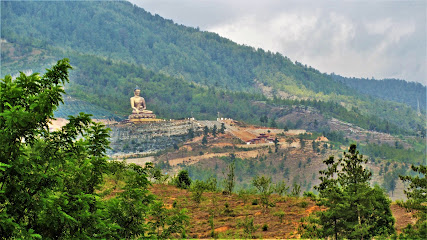
Paro Taktsang
Experience the spiritual serenity and breathtaking views of Paro Taktsang, Bhutan's iconic cliffside monastery nestled in the Himalayas.
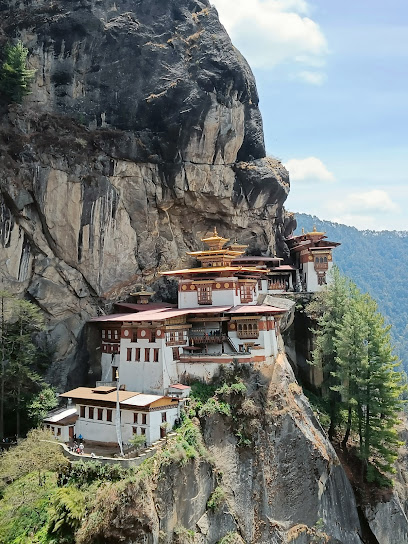
Punakha Suspension Bridge
Explore the breathtaking Punakha Suspension Bridge, a stunning architectural marvel and cultural icon nestled in the heart of Bhutan's picturesque landscape.
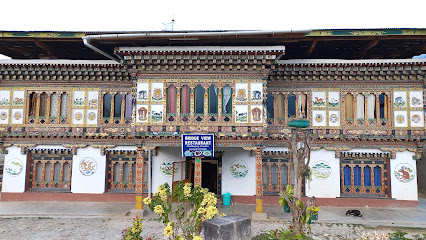
Punakha Dzong སྤུ་ན་ཁ་རྫོང་།
Explore the breathtaking Punakha Dzong, a majestic fortress and spiritual hub that embodies Bhutan's rich cultural heritage and architectural grandeur.
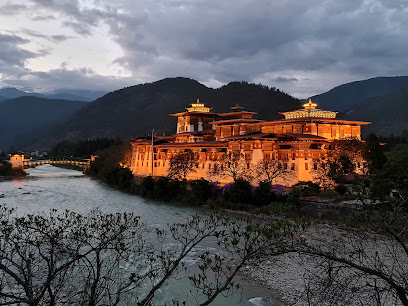
Royal Takin Preserve
Experience the Royal Takin Preserve, a serene sanctuary showcasing Bhutan's national animal amidst stunning natural landscapes.
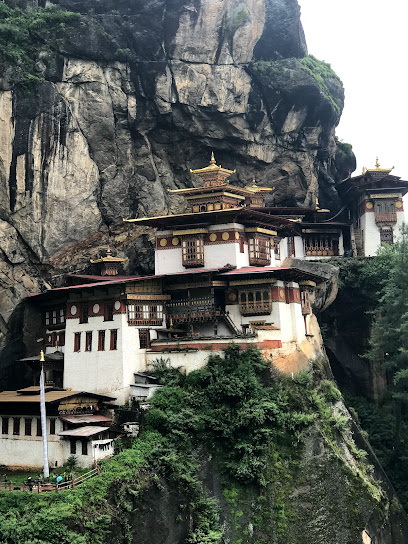
Simtokha Dzong སེམས་རྟོགས་ཁ་རྫོང་།
Discover the historic Simtokha Dzong, Bhutan's oldest fortress, where rich cultural heritage meets breathtaking mountain views.
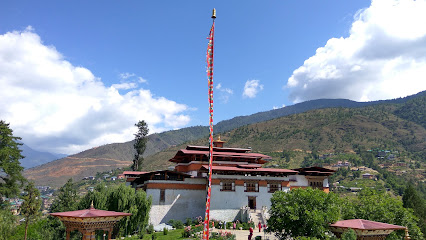
Phobjikha Valley
Experience the breathtaking beauty and cultural richness of Phobjikha Valley, Bhutan, a serene haven for nature lovers and adventure seekers alike.
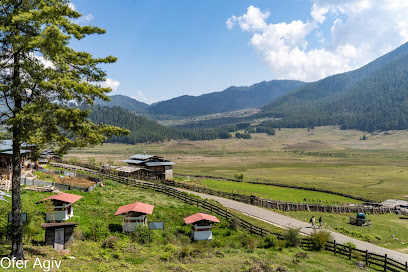
Zangtopelri
Discover the tranquil beauty of Zangtopelri, a serene Buddhist temple in Phuentsholing, Bhutan, rich in spirituality and cultural heritage.
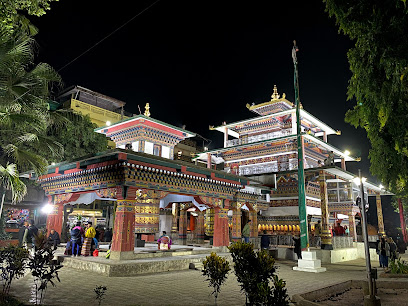
Chimi Lhakhang
Discover the spiritual charm of Chimi Lhakhang, Bhutan's Fertility Temple, where blessings of love and family await amidst stunning landscapes.
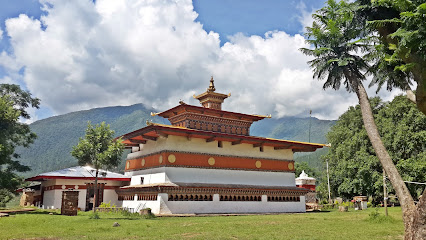
Khamsum Yulley Namgyal Choeten
Discover the tranquility and beauty of Khamsum Yulley Namgyal Choeten, a breathtaking stupa in Bhutan reflecting rich spirituality and stunning vistas.
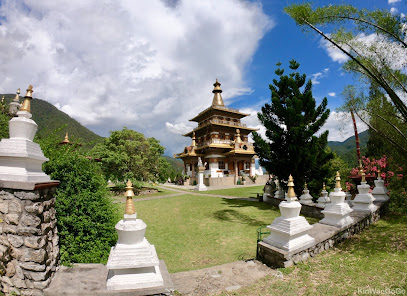
Gangtey Monastery
Experience the tranquility and cultural richness at Gangtey Monastery in Bhutan's enchanting Phobjikha Valley.
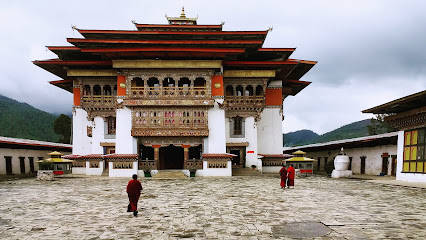
Kurjey Lhakhang སྐུ་རྗེས་ལྷ་ཁང་།
Explore the sacred Kurjey Lhakhang in Bhutan, a stunning Buddhist temple rich in history and spirituality, nestled in the breathtaking Bumthang valley.
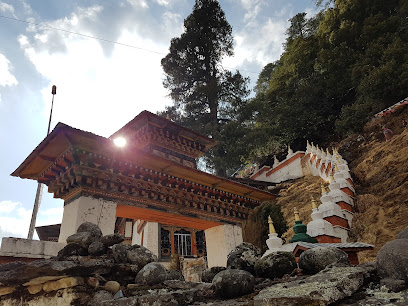
Royal Botanical Garden Serbithang
Explore the Royal Botanical Garden Serbithang, a breathtaking showcase of Bhutan's diverse flora and tranquil landscapes, perfect for nature lovers and tourists.
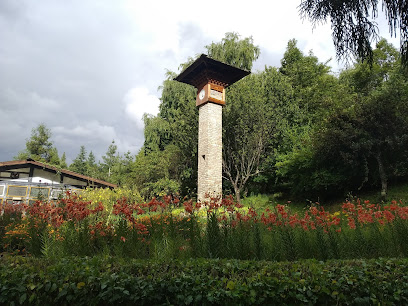
Trongsa Dzong ཀྲོང་གསར་རྫོང།
Explore the architectural marvel of Trongsa Dzong, a historical and spiritual symbol in the heart of Bhutan's breathtaking landscapes.
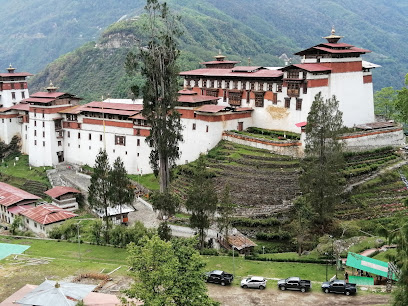
Jamphel Lhakhang བྱམས་་པ་ལྷ་ཁང་།
Explore the serene beauty and spiritual essence of Jamphel Lhakhang, a must-visit Buddhist temple in Jakar, Bhutan, surrounded by breathtaking landscapes.
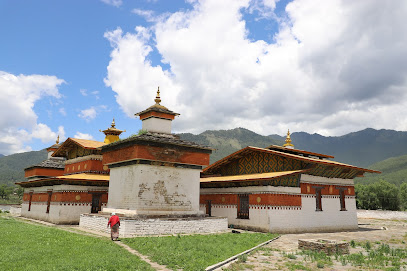
Unmissable attractions to see
Paro Taktsang
Discover the spiritual heart of Bhutan at Paro Taktsang, a breathtaking monastery perched on a cliff with stunning Himalayan views.
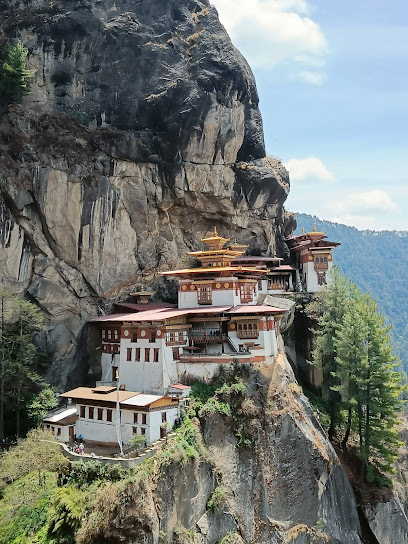
Punakha Suspension Bridge
Explore the breathtaking Punakha Suspension Bridge, Bhutan’s architectural gem offering stunning views and a glimpse into local culture.
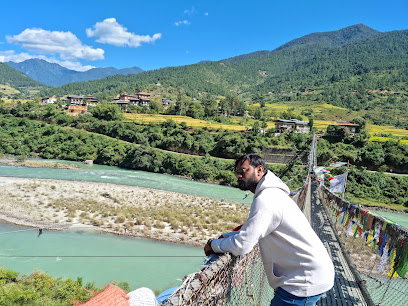
Gangtey Monastery
Experience the tranquil beauty and rich cultural heritage of Gangtey Monastery in Bhutan's stunning Phobjikha Valley.
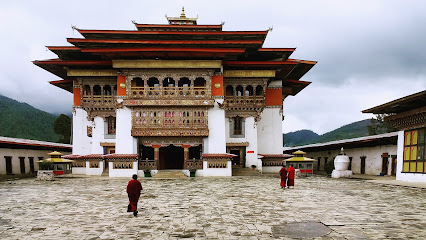
Kurjey Lhakhang སྐུ་རྗེས་ལྷ་ཁང་།
Experience the spiritual heart of Bhutan at Kurjey Lhakhang, a historical Buddhist temple complex surrounded by breathtaking natural beauty.
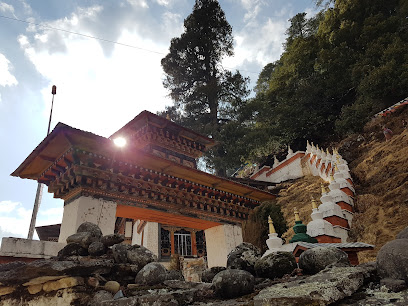
Royal Botanical Garden Serbithang
Discover the lush landscapes and diverse plant life at the Royal Botanical Garden Serbithang, Bhutan's first botanical park in Thimphu.
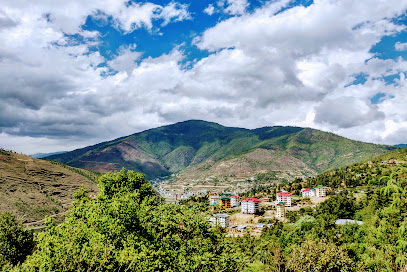
Chorten Kora མཆོད་རྟེན་སྐོར་རར།
Explore the serene beauty of Chorten Kora, a stunning Buddhist stupa in Trashiyangtse, Bhutan, and experience the tranquility of its spiritual heritage.
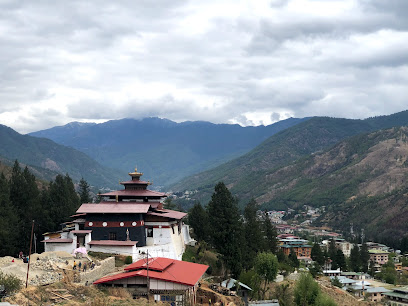
Trashigang Dzong
Explore the breathtaking Trashigang Dzong, a cultural gem in Bhutan showcasing stunning architecture and rich historical significance.
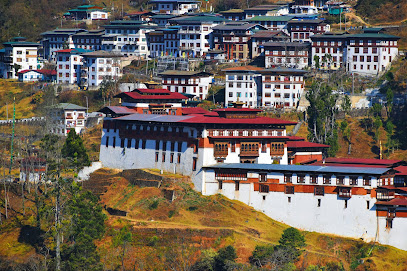
Tamshing Lhakhang གཏམ་ཞིང་ལྷ་ཁང་།
Discover the spiritual essence of Bhutan at Tamshing Lhakhang, a stunning Buddhist temple in Bumthang, rich in culture and breathtaking views.
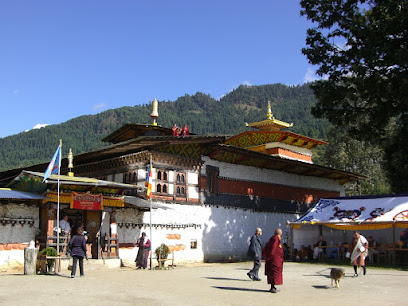
Ogyen Choling
Discover the captivating heritage of Bhutan at Ogyen Choling, a unique museum in the serene Tang Valley that showcases the richness of Bhutanese culture.
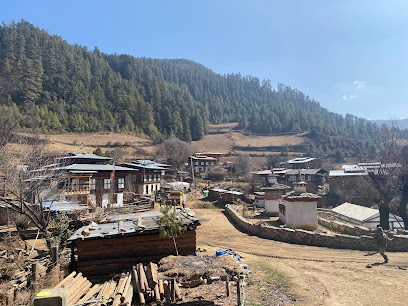
Gom Kora
Experience the Spiritual Essence of Bhutan at Gom Kora Monastery in Trashiyangtse, a serene destination rich in culture and breathtaking views.
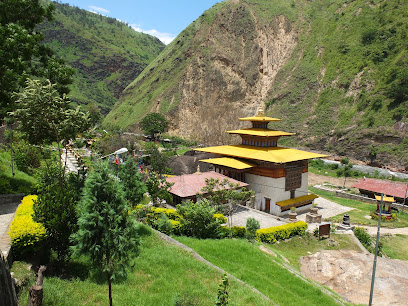
Phuentsholing, Bhutan
Discover the vibrant culture and breathtaking landscapes of Phuentsholing, the gateway to Bhutan's enchanting beauty.
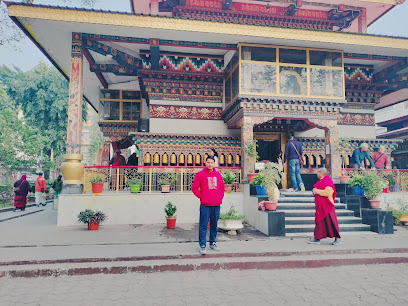
Thrumshing La
Experience the breathtaking beauty of Thrumshing La, one of Bhutan's highest mountain passes, where nature and culture unite in the heart of the Himalayas.
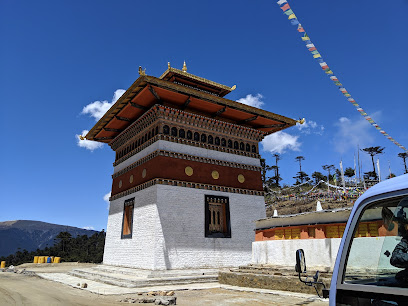
Korila Pass
Experience the breathtaking views and serene atmosphere of Korila Pass, a hidden gem in Bhutan's natural landscape.
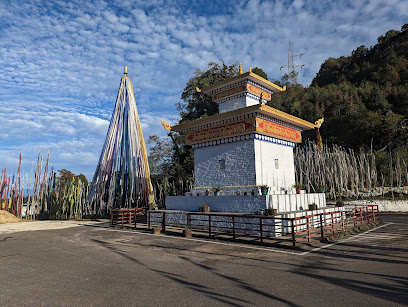
Zuri Dzong
Discover the architectural beauty and spiritual significance of Zuri Dzong, the oldest fortress in Bhutan, set against the stunning backdrop of Paro Valley.
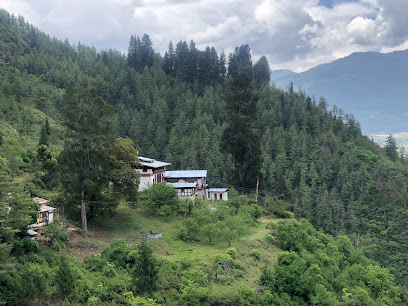
Gongza Ney
Discover the tranquility of Gongza Ney, a stunning Buddhist temple in Trashiyangtse, Bhutan, offering breathtaking views and cultural insights.
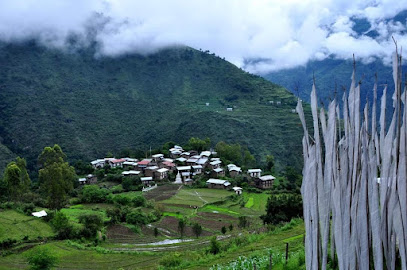
Essential places to dine
Mountain Cafe - Paro
Discover delicious fusion cuisine at Mountain Cafe in Paro - where local flavors meet global tastes in a cozy setting.
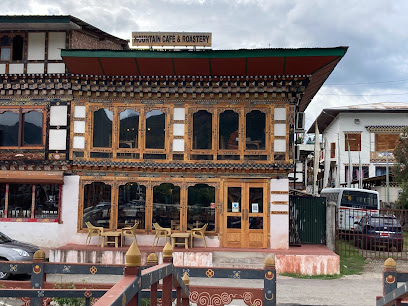
Zombala 2 Restaurant
Experience the essence of Bhutan through authentic dishes at Zombala 2 Restaurant in Thimphu.
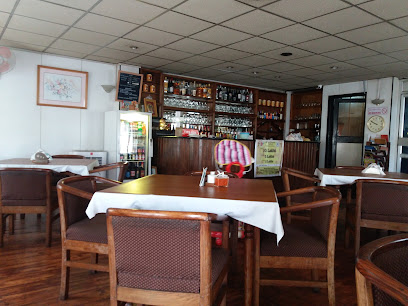
Sonam trophel restaurant
Experience authentic Bhutanese flavors at Sonam Trophel Restaurant in Paro - a culinary journey awaits!
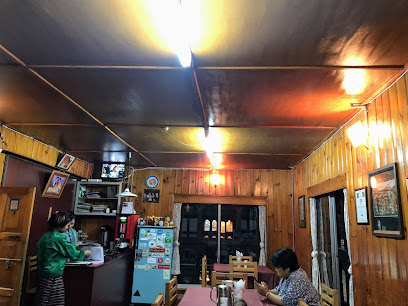
Mountain Cafe
Discover culinary delights at Mountain Cafe in Paro - where traditional Indian flavors meet cozy mountain vibes.
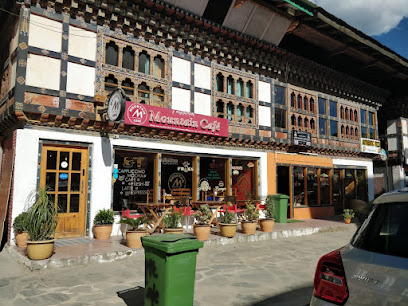
Babesa Village Restaurant
Experience authentic Bhutanese cuisine at Babesa Village Restaurant in Thimphu - where tradition meets taste.
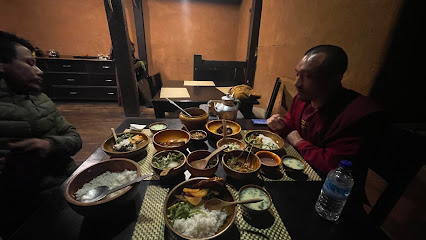
MERENGMA' Bistro & Bar
Discover the flavors of Bhutan at MERENGMA' Bistro & Bar - where local ingredients meet global cuisine in a warm and inviting atmosphere.
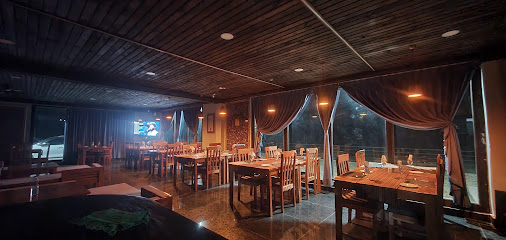
San Maru Restaurant
Experience authentic Korean flavors at San Maru Restaurant in Norzin—where every dish tells a story.
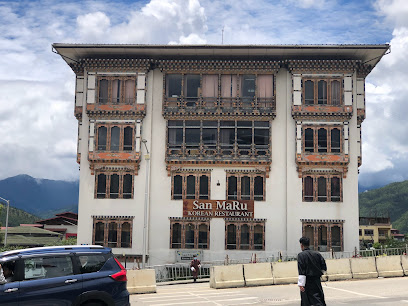
My Kind Of Place
Discover authentic Bhutanese flavors at My Kind Of Place in Paro – where local ingredients meet culinary creativity.
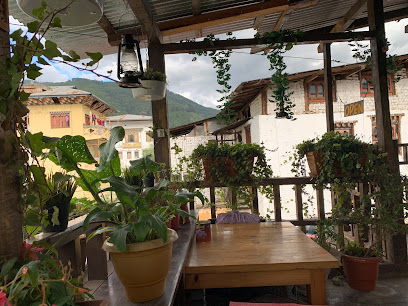
Chh'a Bistro and Bar
Discover the exquisite blend of traditional Bhutanese flavors and modern cuisine at Chh'a Bistro and Bar in Thimphu.
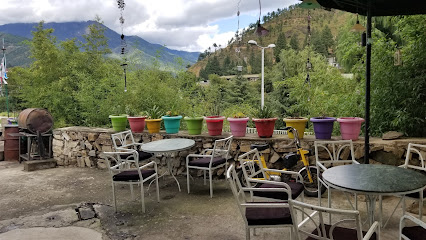
Hotel Chicken Dinner
Savor delicious local and international cuisine at Hotel Chicken Dinner in Khuruthang—where culinary excellence meets comfort.
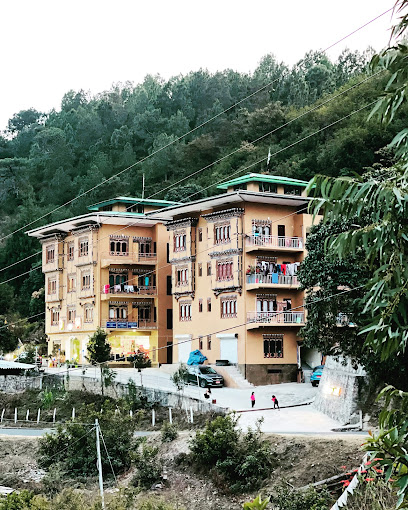
Kuenga Restaurant
Discover authentic Bhutanese flavors at Kuenga Restaurant in Khuruthang - a must-visit culinary gem for every traveler.
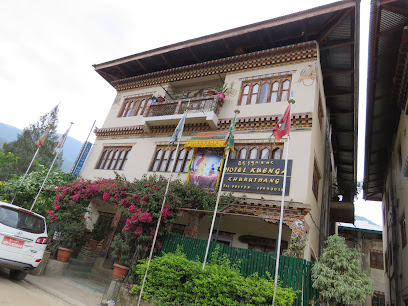
FnB Restaurant
Discover authentic Bhutanese flavors at FnB Restaurant in Thimphu – where culinary tradition meets contemporary dining.
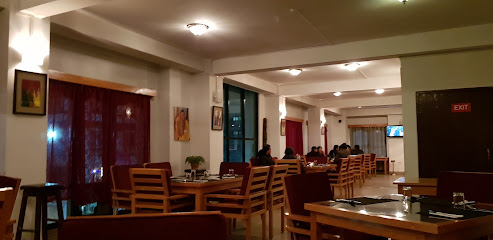
Gomthey Restaurant And Bar
Discover delightful Bhutanese cuisine at Gomthey Restaurant and Bar—where authentic flavors meet a warm atmosphere in the heart of Bhutan.
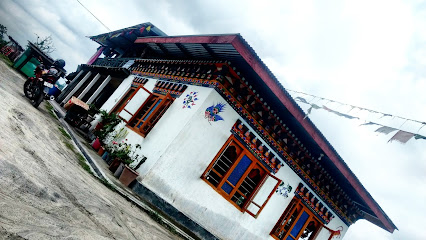
Tshering Farmhouse
Discover the essence of Bhutan at Tshering Farmhouse - where authentic cuisine meets warm hospitality amidst stunning landscapes.
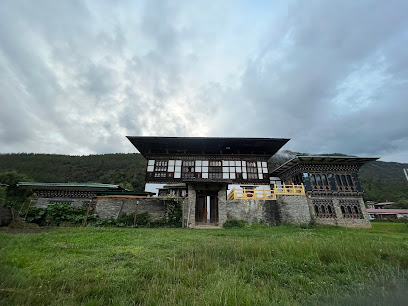
Folk heritage museum restaurant
Discover traditional flavors at the Folk Heritage Museum Restaurant in Thimphu – where culture meets cuisine for an unforgettable dining experience.
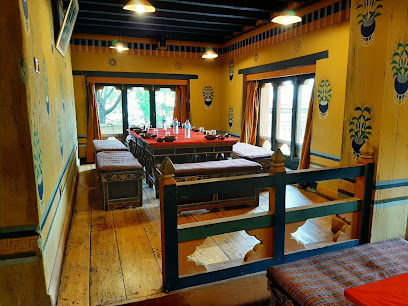
Markets, malls and hidden boutiques
Centenary Farmers Market
Discover the flavors and culture of Bhutan at the Centenary Farmers Market, where fresh produce and local crafts await every visitor.
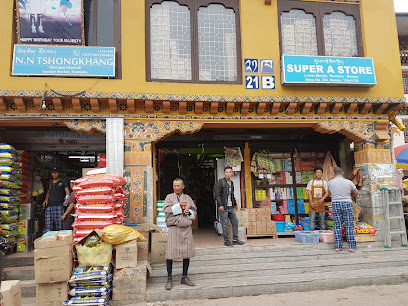
Paro Town Shop No.12.Empty space for rent
Explore the vibrant culture and local flavors at Paro Town Shop No.12, a premier shopping destination in Bhutan’s enchanting Paro valley.
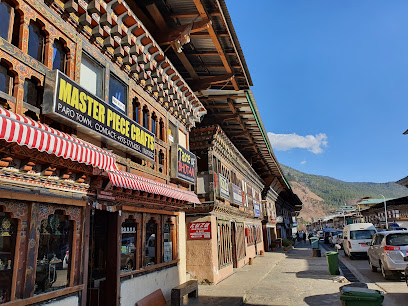
Google Collection Mongar Bhutan
Explore the essence of Bhutan at Google Collection in Mongar, a charming general store offering authentic local goods and unique souvenirs.
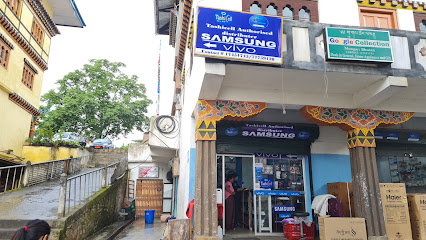
CSI Market
Discover the heart of Thimphu at CSI Market, where local culture, delicious food, and unique shopping come together in a vibrant experience.
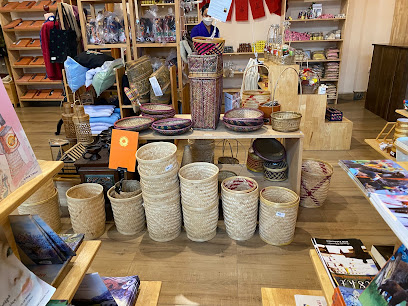
National Handicraft Emporium
Discover the rich heritage of Bhutan's craftsmanship at the National Handicraft Emporium, where tradition meets artistry.

Junction Bookstore
Explore Junction Bookstore in Thimphu, a literary haven with a rich selection of books and a cozy atmosphere perfect for every book lover.
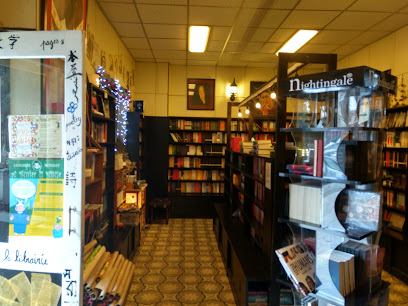
Mongar Town
Explore Mongar Town: A vibrant market in Bhutan filled with local crafts, delicious street food, and rich cultural experiences.
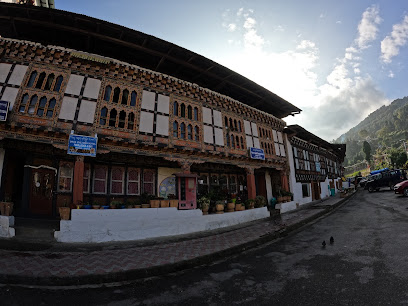
Chencho Handicraft & Weaving Center
Discover the vibrant craftsmanship of Bhutan at Chencho Handicraft & Weaving Center, where tradition meets artistry in every woven piece.
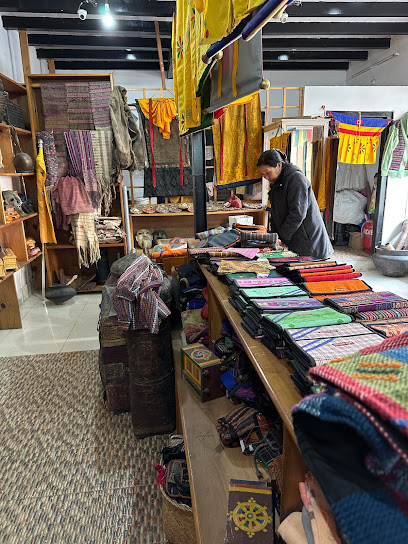
Lhuntse Mongar Junction Farmers Stall
Discover the vibrant flavors and authentic ingredients of Bhutan at Lhuntse Mongar Junction Farmers Stall, your gateway to local culinary delights.
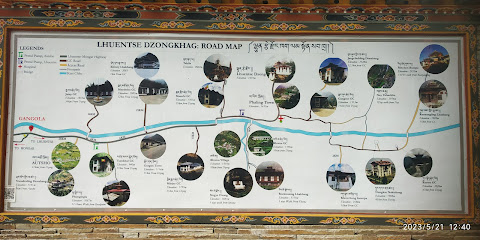
CDK GYENCHA
Explore CDK GYENCHA in Thimphu for exquisite Bhutanese fashion that blends tradition with modern style, perfect for every discerning traveler.
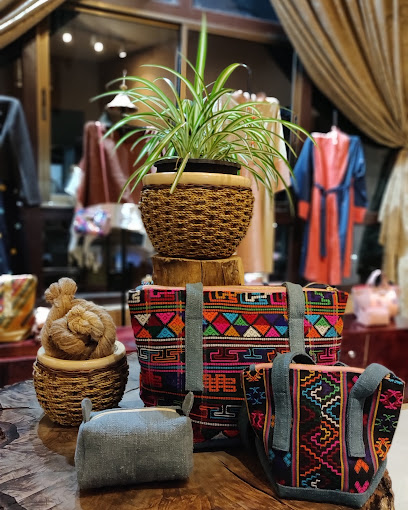
Miniso Bhutan Mongar
Explore Miniso Bhutan Mongar for stylish, affordable products that blend quality with unique Bhutanese charm.
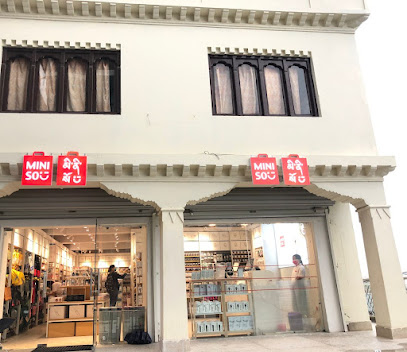
Yoesel Handicrafts
Discover the essence of Bhutan's artistry at Yoesel Handicrafts, where tradition meets craftsmanship in every unique piece.
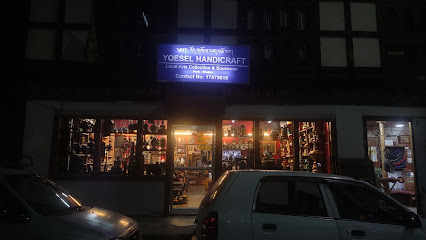
K K STORE
Discover the local charm at K K STORE in Samtse, where vibrant shopping meets authentic Bhutanese culture.
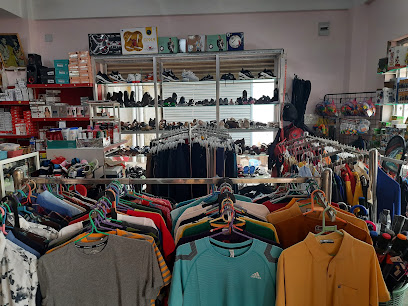
Dry Agro production
Explore Mongar's Dry Agro Production for a taste of premium dry fruits, showcasing the region's agricultural excellence and healthy culinary traditions.
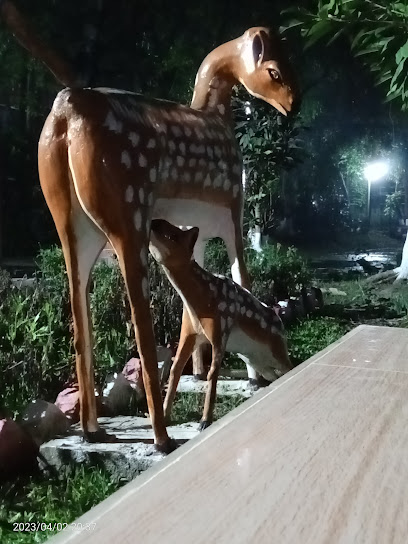
Sonam Tshongkhang
Discover handcrafted artistry at Sonam Tshongkhang, a unique countertop store in Thimphu, showcasing Bhutan's rich cultural heritage.
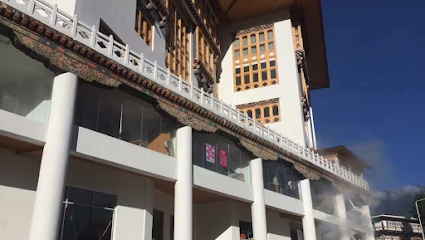
Essential bars & hidden hideouts
Mojo Park
Experience the vibrant nightlife of Thimphu at Mojo Park, where delicious food, live music, and a lively atmosphere come together for an unforgettable evening.
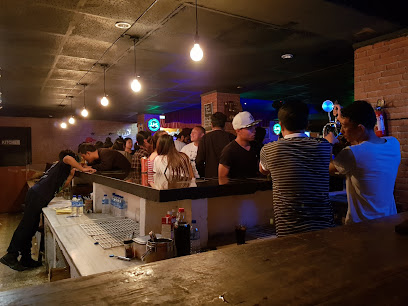
Kuenzang Hotel & Bar
Discover the flavors of authentic Bhutanese cuisine at Kuenzang Hotel & Bar, a must-visit restaurant along the Bumthang-Ura Highway.
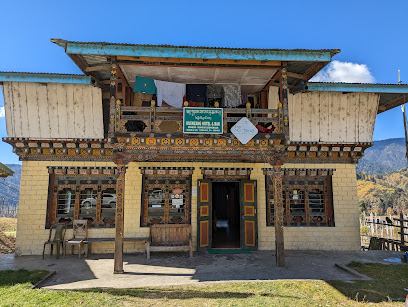
TP's Bar
Discover the lively ambiance and refreshing drinks at TP's Bar in Lingmethang - a true gem for travelers seeking local culture and relaxation.
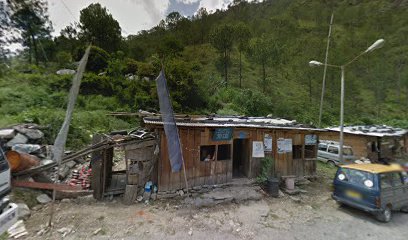
Tenzin Wangmo Bar
Discover the lively atmosphere at Tenzin Wangmo Bar in Jakar, offering a taste of Bhutanese culture and an array of delightful beverages.
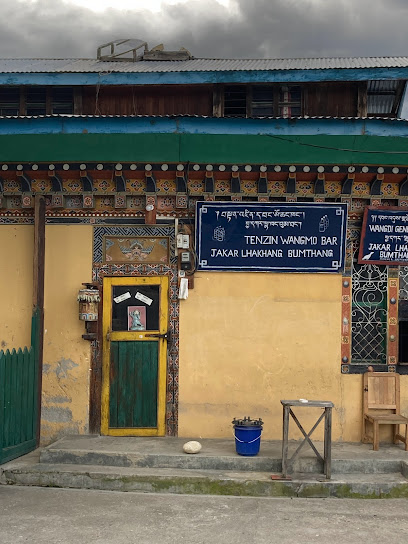
Mr.Bokto Food, Lodge and Bar
Discover the enchanting blend of comfort and local cuisine at Mr.Bokto Food, Lodge and Bar in Mongar, Bhutan.
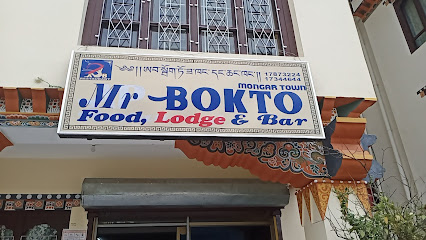
Ura Yurgang
Discover Ura Yurgang, a vibrant bar in Ura, Bhutan, offering a lively atmosphere, local brews, and cultural experiences for every traveler.
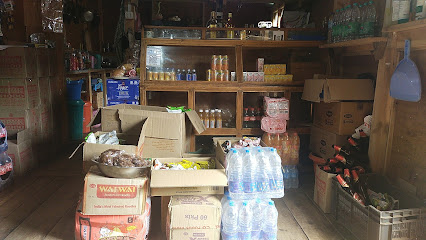
Chechaymo Bar
Discover the charm of Chechaymo Bar in Jakar, where local culture meets refreshing drinks and stunning mountain views.
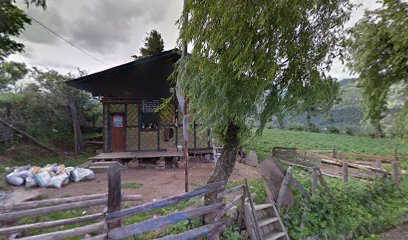
Staff
Discover Zhemgang's local bar for an authentic Bhutanese experience filled with traditional drinks and a vibrant atmosphere.

Subba Bar
Discover the vibrant atmosphere and local flavors at Subba Bar in Jakar, where relaxation meets cultural immersion.
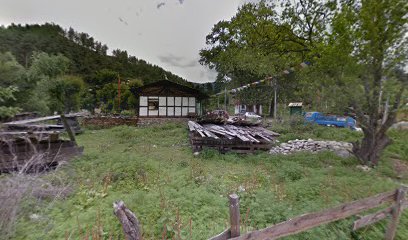
Maybar Karaoke
Experience the vibrant nightlife of Mongar at Maybar Karaoke, where singing and laughter create unforgettable memories.
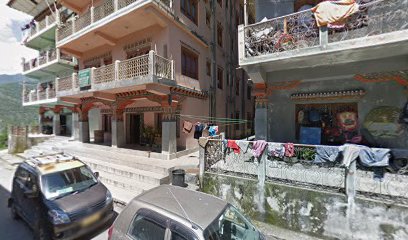
Chomo Restuarent
Explore the flavors of Bhutan at Chomo Restaurant in Jakar, where vibrant dishes and a warm atmosphere await every visitor.
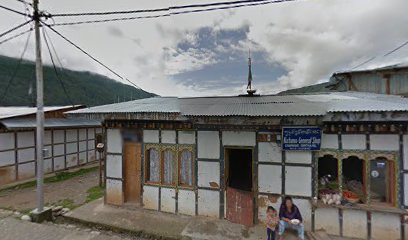
Ugyenling Restaurant and Bar
Experience the vibrant flavors of Bhutan at Ugyenling Restaurant and Bar in Jakar, where local dishes meet international cuisine in a cozy setting.
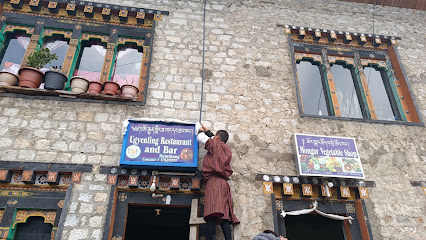
Chenzom Bar
Experience the vibrant local culture at Chenzom Bar in Jakar, where refreshing drinks and warm hospitality await every traveler.
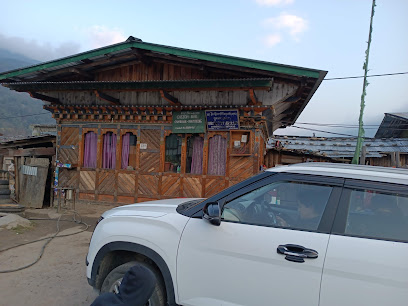
Sonam Yangkhel, Restaurant Cum Bar
Experience the warmth of Bhutanese hospitality at Sonam Yangkhel, a restaurant cum bar in Jakar offering delectable local and international dishes.

Travel experiences inspired by this city
Explore more travel diariesLocal Phrases
-
- Helloཇོ ལི ཇོ
[jo li jo] - Goodbyeཇོ བ བས ༢
[jo ba bas] - Yesཡོ
[yo] - Noམེད
[me] - Please/You're welcomeཇོ དག བ
[jo dak ba] - Thank youཇོ བ བ ས
[jo ba bas] - Excuse me/Sorryཅོ བ བ བ པ
[cho ba ba pa] - How are you?ཁོ བ ད ཅེ ས བ
[kho da che sa ba] - Fine. And you?ཆ ཏ ད ཆ ད ས བ
[cha ta da cha da sa ba] - Do you speak English?ང ར ད ག ཉི ས བ བ ས བ
[nga ra da nyi sa ba bas ba] - I don't understandང བ བ ཟ བ
[nga ba ba za ba]
- Helloཇོ ལི ཇོ
-
- I'd like to see the menu, pleaseང ད ལ བ ད བ འི འ ད མ
[nga da la ba di a da ma] - I don't eat meatང བ ད ག ཡ བ བ
[nga ba da ga ya ba] - Cheers!ཕ ར འ ཕ བ
[pha ra a pha ba] - I would like to pay, pleaseང ད ད འི ག
[nga da da di ga]
- I'd like to see the menu, pleaseང ད ལ བ ད བ འི འ ད མ
-
- Help!བ ད ན འ
[ba da na a] - Go away!ག ད ད ན
[ga da da na] - Call the Police!ག ད ད འ
[ga da da a] - Call a doctor!ག བ ལ བ འ
[ga ba la ba a] - I'm lostང ཉ ཡ བ བ
[nga nyi ya ba ba] - I'm illང ད ད ད ག
[nga da da da ga]
- Help!བ ད ན འ
-
- I'd like to buy...ང ད བ བ འི མ
[nga da ba di ma] - I'm just lookingང བ བ འི མ ག
[nga ba ba di ma ga] - How much is it?མ བ བ ད བ
[ma ba ba da ba] - That's too expensiveད འི ད ཅི ད ད
[da di da chi da da] - Can you lower the price?ང ཉ བ བ ད ད བ འི ད
[nga nyi ba ba da da ba di da]
- I'd like to buy...ང ད བ བ འི མ
-
- What time is it?ཁ བ ག མ ད ད ད ད
[kha ba ga ma da da da da] - It's one o'clockད ར ར ད
[da ra ra da] - Half past (10)བ ད ག བ མ
[ba da ga ba ma] - Morningད ཟ ད
[da za da] - Afternoonར ད
[ra da] - Eveningད ད ད
[da da da] - Yesterdayཟ བ ད
[za ba da] - Todayཁ ད
[kha da] - Tomorrowཁ ཟ ད
[kha za da] - 1༡
[1] - 2༢
[2] - 3༣
[3] - 4༤
[4] - 5༥
[5] - 6༦
[6] - 7༧
[7] - 8༨
[8] - 9༩
[9] - 10༡༠
[10]
- What time is it?ཁ བ ག མ ད ད ད ད
-
- Where's a/the...?མ ད ཡ བ ད
[ma da ya ba da] - What's the address?ཁ ད ན བ ད
[kha da na ba da] - Can you show me (on the map)?ང ཉ པ ས ས བ འ
[nga nyi pa sa sa ba di] - When's the next (bus)?ཁ ད ར ད ད
[kha da ra da da] - A ticket (to ....)ད ད ཏ ཀ ཅི ས
[da da ta ka chi sa]
- Where's a/the...?མ ད ཡ བ ད
History of Mongar
-
Mongar Dzong, one of the newest dzongs in Bhutan, was constructed in the 1930s. Unlike many other dzongs in Bhutan, which date back centuries, Mongar Dzong was built to replace the older Zhongar Dzong, which had fallen into disrepair. The new dzong was constructed under the guidance of Bhutan's third king, Jigme Dorji Wangchuck, and it serves as the administrative and religious center of the district.
-
Before the construction of Mongar Dzong, the region was dominated by Zhongar Dzong, which dates back to the 17th century. Located on a ridge overlooking the Kurichu River, Zhongar Dzong was an important fortress and administrative center. Its ruins still stand today and are a testament to the region's historical significance. The dzong was known for its strategic location and architectural beauty, and it played a crucial role in the defense and governance of eastern Bhutan.
-
Mongar has seen significant development over the past few decades, particularly under the reign of Bhutan's fourth king, Jigme Singye Wangchuck. The construction of the East-West Highway, which passes through Mongar, has brought increased connectivity and economic opportunities to the region. This development has helped Mongar transform from a remote outpost into a bustling town, serving as a gateway to eastern Bhutan.
-
Mongar is known for its vibrant culture and traditions. The annual Mongar Tshechu, a religious festival held at Mongar Dzong, is one of the district's most important cultural events. The festival features colorful mask dances, religious rituals, and community gatherings, attracting visitors from all over Bhutan. Mongar is also renowned for its weaving, with local artisans producing some of the finest textiles in the country. The region's cultural heritage is deeply intertwined with its religious and community life, offering a rich tapestry of experiences for visitors.
-
Mongar is blessed with stunning natural landscapes, ranging from lush forests to rolling hills and pristine rivers. The region is part of the eastern Himalayan biodiversity hotspot, home to a wide variety of flora and fauna. The Kurichu Hydropower Plant, located near Mongar, is an example of how the region balances development with environmental conservation. The plant, which harnesses the power of the Kurichu River, provides electricity to the region while also ensuring the protection of the surrounding natural habitat.
Mongar Essentials
-
Mongar is located in eastern Bhutan and is accessible by both air and road. The nearest airport is Yongphula Airport in Trashigang, approximately 3 hours away by road. Alternatively, you can fly into Paro International Airport and then take a domestic flight to Bumthang, followed by a scenic drive to Mongar. Road travel is also an option, with buses and taxis available from major cities like Thimphu and Paro. The journey by road offers stunning views of Bhutan’s rugged landscape.
-
Within Mongar, local taxis and private vehicles are the primary modes of transportation. There are also bus services connecting Mongar to nearby towns and villages. For more flexibility, consider renting a car. Walking is feasible for short distances, allowing you to explore the town’s local markets and attractions at your own pace.
-
The official currency in Bhutan is the Ngultrum (BTN), which is pegged to the Indian Rupee (INR). Credit cards are accepted in some hotels and larger shops, but it is advisable to carry cash, especially in smaller establishments. ATMs are available in Mongar, but it is wise to withdraw sufficient cash beforehand if you're planning to visit remote areas.
-
Mongar is generally safe for tourists, with low crime rates. However, it is always advisable to take standard precautions. Avoid walking alone at night in unfamiliar areas and keep an eye on your belongings in crowded places. There are no specific high-crime areas targeting tourists, but remain vigilant and aware of your surroundings.
-
In case of an emergency, you can dial 113 for police assistance or 112 for medical emergencies. Mongar has a district hospital equipped to handle most medical issues. It's recommended to have travel insurance that covers medical emergencies. Pharmacies are available in town for minor health concerns and over-the-counter medications.
-
Fashion: Do dress modestly, especially when visiting religious sites. Avoid wearing revealing clothing. Religion: Do respect local customs and traditions. Always remove your shoes and cover your head when entering temples and monasteries. Public Transport: Do be respectful and give up your seat to elderly passengers. Don’t eat or drink on public transport. Greetings: Do greet people with a slight bow or a handshake. Avoid hugging or kissing in public. Eating & Drinking: Do try local delicacies and accept food offerings graciously. Don’t refuse hospitality, as it is considered impolite.
-
To experience Mongar like a local, visit the weekend market where you can buy fresh produce and traditional Bhutanese goods. Engage with locals, as they are often friendly and willing to share stories about the town’s history and culture. Don’t miss visiting the Mongar Dzong, a fortress that offers a glimpse into Bhutanese architecture and spirituality. For a unique experience, participate in a local festival, known as 'Tshechu,' which features traditional dances and religious rituals.
Trending Landmark in Mongar
-
Buddha Dordenma Statue སྟོན་པ་རྡོར་གདན་མ།
-
Paro Taktsang
-
Punakha Suspension Bridge
-
Punakha Dzong སྤུ་ན་ཁ་རྫོང་།
-
Royal Takin Preserve
-
Simtokha Dzong སེམས་རྟོགས་ཁ་རྫོང་།
-
Phobjikha Valley
-
Zangtopelri
-
Chimi Lhakhang
-
Khamsum Yulley Namgyal Choeten
-
Gangtey Monastery
-
Kurjey Lhakhang སྐུ་རྗེས་ལྷ་ཁང་།
-
Royal Botanical Garden Serbithang
-
Trongsa Dzong ཀྲོང་གསར་རྫོང།
-
Jamphel Lhakhang བྱམས་་པ་ལྷ་ཁང་།
Nearby Cities to Mongar
-
Things To Do in Trashigang
-
Things To Do in Jakar
-
Things To Do in Bumthang
-
Things To Do in Trongsa
-
Things To Do in Wangdue Phodrang
-
Things To Do in Guwahati
-
Things To Do in Punakha
-
Things To Do in Thimphu
-
Things To Do in Paro
-
Things To Do in Phuentsholing
-
Things To Do in Shillong
-
Things To Do in Itanagar
-
Things To Do in Gangtok
-
Things To Do in Rangpur
-
Things To Do in Sylhet










